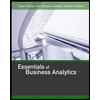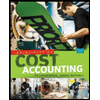the use of "high powered" quarterly sales commissions, used by virtually every firm that sells software. A typical incentive compensation scheme (as a function of sales) is highly convex: a sales person earns 2% if she sells $100,000 worth of software; 5% if $500,000; 8% if $1,000,000, ..., up to 25% if $8,000,000.
the use of "high powered" quarterly sales commissions, used by virtually every firm that sells software. A typical incentive compensation scheme (as a function of sales) is highly convex: a sales person earns 2% if she sells $100,000 worth of software; 5% if $500,000; 8% if $1,000,000, ..., up to 25% if $8,000,000.
Ian finds that these high-powered (convex) compensation schedules give salespeople an incentive to "bunch" sales into the same quarter. Just as convex production costs can be reduced by "smoothing", i.e., holding inventories to buffer sales shocks, so too can convex commissions be increased by "bunching" sales into the same quarter, the opposite of "smoothing."
Using proprietary data from a large vendor he finds that 75% of sales are occurring on the last day of the quarter; and 5% of sales occur on the first day of the quarter, as salespeople give discounts to customers to accelerate or delay purchases. These discounts cost the firm about 7% of revenue, which is about the same amount that it pays out in sales commissions.
The 7% revenue loss suggests that there is a way to make both firm and its salespeople better off: adopt linear commission schemes to eliminate the incentive to "bunch," and split the 7% savings between the firm and its salespeople in the form of higher commission rates.
When asked why they use these costly incentive compensation schemes, managers say only that they need them to retain their "superstar" salespeople. But surely there is a better way to retain superstars, isn't there?
What do you think about that?
Trending now
This is a popular solution!
Step by step
Solved in 2 steps









